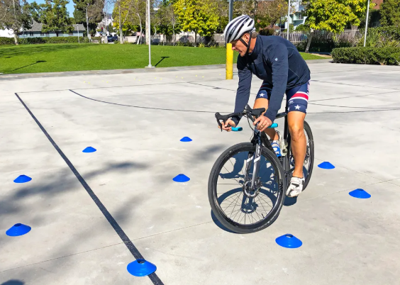
Training for a triathlon takes effort and steady practice. Many athletes reach a stage where they need more structure.
Triathlon certification programs give that structure in clear steps. These programs help improve endurance, speed, and strength. They also reduce mistakes that can slow training.
With the right guidance, athletes can train smarter and safer. Look into triathlon certification programs to see how they can raise your performance.
Building a Strong Training Foundation
A strong base is needed before moving to harder training. Certification programs show how to build this base slowly. They focus on steady progress instead of rushing.
This helps the body adjust and stay strong over time. Without a base, injuries and burnout are more likely. With it, athletes can handle longer and harder sessions.
Improving Swimming Technique
Swimming can be the hardest part for many triathletes. Programs teach better breathing, balance, and stroke form. These changes save energy for cycling and running.
Good technique also helps avoid strain in the shoulders. Training includes simple drills that build smooth movement. With practice, athletes swim faster and feel more comfortable in the water.
Enhancing Cycling Endurance
Cycling demands strength and steady pacing. Programs teach how to mix tough rides with recovery rides. This mix builds stamina without draining energy.
Athletes also learn proper posture for power and comfort. Better habits on the bike make the run stage easier. With time, guided cycling builds speed and consistency.
Optimizing Running Efficiency
Running at the end of a triathlon is very tough. Certification programs teach how to pace from start to finish. They help athletes avoid burning out too early. Good running form lowers stress on legs and joints.
Drills focus on steady speed and strong endurance. These habits make finishing the race smoother and stronger.
Understanding Recovery and Nutrition
Recovery is as important as training. Programs explain how rest and food help the body repair. Good meals keep energy levels steady and muscles healthy. Hydration is also taught as part of performance.
Without recovery, training progress slows or stops. With it, athletes can keep improving without setbacks.
Gaining Knowledge for Long-Term Success
Triathlon certification gives more than training plans. It also gives knowledge for future races. Athletes learn how the body reacts to different training stages. With this, they can adjust plans as skills grow.
The lessons apply for both short-term and long-term goals. This knowledge builds confidence and keeps athletes moving forward.
Mastering Transitions Between Stages
Transitions are often overlooked but can save valuable time. Programs teach how to move smoothly from swimming to cycling and from cycling to running. Small changes in routine make these shifts faster and less stressful.
Athletes practice gear setup and quick adjustments. Good transitions reduce wasted energy during the race. With practice, transitions become part of the overall performance boost.
Staying Mentally Strong
Mental strength is just as important as physical training. Programs teach focus and calm under pressure. Athletes learn how to manage stress during long races.
Simple strategies help control nerves at the start line. Building mental toughness supports steady performance. A strong mindset keeps athletes moving even when tired.
Go for Triathlon Certification Programs
Triathlon certification programs make training clear and simple. They help athletes improve without risking burnout. With structure and steady steps, progress is easier to see.
These programs give athletes the tools to stay strong. The right guidance makes every race more rewarding.
Should you wish to discover other reads, head to our blog page. We've got more!





(0) comments
We welcome your comments
Log In
Post a comment as Guest
Keep it Clean. Please avoid obscene, vulgar, lewd, racist or sexually-oriented language.
PLEASE TURN OFF YOUR CAPS LOCK.
Don't Threaten. Threats of harming another person will not be tolerated.
Be Truthful. Don't knowingly lie about anyone or anything.
Be Nice. No racism, sexism or any sort of -ism that is degrading to another person.
Be Proactive. Use the 'Report' link on each comment to let us know of abusive posts.
Share with Us. We'd love to hear eyewitness accounts, the history behind an article.